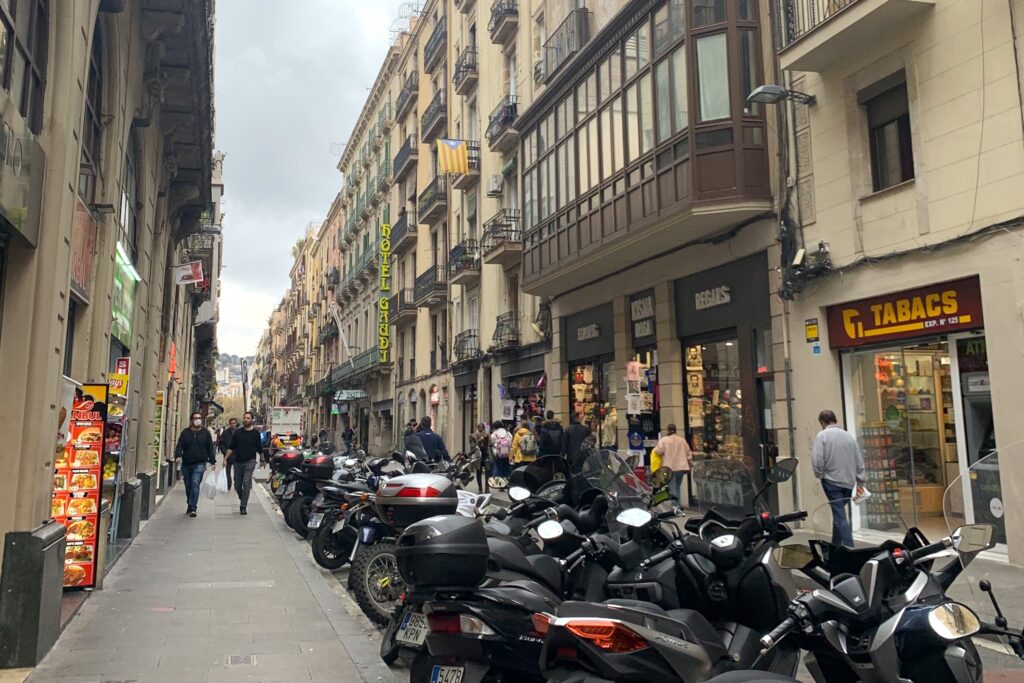
Cultural awareness is an important consideration when planning your trip abroad. To be culturally aware, you need to learn how people communicate, what the current political issues are, and understand the country’s attitude is toward tourists. You should have a basic understanding of what the culture values, and if there are any recent civil rights issues.
In this article, I will cover what you should research before immersing yourself into a new culture. Without further adieu, here are 5 helpful tips to become more culturally aware before traveling abroad:
how to become culturally aware when Traveling Abroad:
1. Learn the Non-Verbal Communication Style
Questions to ask:
- What tone of voice do people use?
- How close do they stand to one another while in conversation?
- How much eye contact do they make?
- What communication style is considered to be rude?
A part of communicating in a foreign country is understanding the manner in which they communicate. In order to read a social situation, you need to understand how they communicate. Understanding non-verbal cues is also useful when you are navigating a language barrier or evaluating how safe you are in a foreign environment.
In some places, such as Italy, people speak very loudly and use a lot of gestures. When people speak loudly or make large hand-gestures in the United States, it can come across as aggressive or rude. But in Italy, it is normal for people to behave this way while speaking.
Europeans don’t have the same idea that Americans do when it comes to personal space. Europeans stand pretty close together while engaging in conversation. In America, standing close to someone may suggest intimacy but this isn’t the case in other places. Europeans stand closer to one another on public transportation and when passing strangers on the street.
I was walking down the street in Barcelona. It was newly dark and I was staring at a gorgeous cathedral. A man quickly shuffled passed me, coming within a few inches of my shoulder. My heart sped up. I shot a gaze at him like Texas white-tailed deer caught in headlights. After a week of exploring the city, I realized that it is normal for locals to get close to someone while passing them. Once I learned this, I was less threatened when someone got close to me.
Eye contact has different meanings culture to culture. It is especially important to learn about this if you are visiting somewhere that is more hierarchical.
In Asian countries like Japan, children are taught that excessive eye contact is rude. They are told that they should look at someone’s neck while speaking to them so that their eyes fall into their peripheral vision. However, in Western European countries like Finland and in the United States, it is considered rude to not look someone in the eyes when you are speaking with them.
In Middle Eastern cultures, particularly in Muslim societies, if a woman engages in eye contact with a man she is expressing sexual interest in him. Whereas in East Asian Cultures, people perceived someone as unapproachable and angry when they were engaging in direct eye contact with them.
2. Brush up on Local Current Events and National History
Questions to ask:
- What is currently going on in the local government?
- What are the big historical events of this country? Who were they previously colonized by?
- What are the current political issues? How have historical events and the tourism industry affected the country’s political issues?
When you are first entering a new culture, it is very valuable to learn about the historical and political factors that affect the daily lives of those who live there. Not only to learn what topics to avoid while talking to locals but also to orient yourself as an outsider looking in. If you go into a country knowing nothing about the history and politics of the place, you won’t have any context to understand what you’re observing. You won’t know when a guide or museum is twisting the country’s history to fit a political narrative or when a subtle political statement is being made.
Before going to Budapest, I looked into the history of the Hungarian political system. I learned that Hungary wasn’t officially a democracy until 1989 and that before that they were communist. Although they were officially a democracy while I was there in June of 2022, at that time, not all Hungarians felt that their government was a true democracy. In September, just a couple of months after I was there, the European Parliament declared that Hungary can no longer be considered a full democracy. I now understand the historical point at which I entered, making for a much more interesting reflection of what I saw on the trip.
When I was in Budapest, I visited The House of Terror Museum which supposedly honors victims of the Holocaust, facism and the communist regime. I am very glad that I was armed with knowledge about the political system in Hungary prior to visiting the museum. The museum was built using the presidential campaign funds of Janos Ader, who has been called a communist sympathizer.
The museum’s name: “The House of Terror” sounds more like a haunted house than an educational space. “Terror” is certainly what the museum aimed to evoke in its visitors, not empathy. To read more about my trip to the House of Terror, read the third paragraph in the additional information section. (Trigger Warning)
3. Find Out What The Country’s Attitude Is Toward Tourists
Questions to ask:
- Are locals friendly/accommodating to tourists?
- Do you need to tip people in the service industry? If so, under what context?
- How do people perceive your home country?
Every country has a different attitude towards tourists and a different understanding of how one should act while visiting a new place. If you know that a certain place tends to exclude outsiders, you may want to learn the native language beforehand. This will make it easier to get around in a place where you otherwise may have a hard time.
It is also important to research how people in different cultures dress before packing your bag. This is very important because when interacting with locals, a first glance is often all they have to go off of. For tips on how to pack your bag, read our packing guide.
In Europe, for example, people tend to dress up more. It isn’t normal to go to breakfast in your pajamas in a hotel. A quick bite at the breakfast buffet or a local coffee shop warrants jeans and a cute top– not athleisure or sleepwear.
If the place you’re going is a common tourist destination, people are likely to be more forgiving and helpful toward people of other cultural backgrounds. If you find yourself in a place where tourists aren’t welcome, don’t ask a stranger for directions or help. Go into a coffee shop and buy something. Then ask the person behind the counter if they speak English and ask them a question.
One time, I was looking for a currency exchange booth in Florence and went up to a host at a restaurant for help. After the host told me where the currency booth was, I thanked him and walked away. He then shouted after me asking for a tip. This was a very weird experience and I haven’t had another one like it since.
The takeaway here is this: In a place where you feel unwelcome, don’t ask anyone anything unless you’re buying something or plan on tipping them. As a teenager walking through the plaza wearing heart shaped sunglasses and a tank top– I most certainly was not welcome at a white tablecloth restaurant.
It is no secret that a lot of people in other countries don’t like Americans. If you want to avoid the judgment associated with being an American– just say what state you’re from. Whenever I told Europeans that I was from Texas, I got a very different reaction than when I said I was from the US.
While standing in line to get into a club, an Irish man proposed to me upon learning that I was from Texas. He told me that he had been trying to get US citizenship for years because he wanted to move to Texas. The idea of owning a gun and living out in the country excited him.
4. Research Cultural Values and Family Structures
Questions to ask:
- Are people in this culture more focused on work or their personal lives?
- Is the culture individualistic or collectivistic? (Are they focused on themselves or are they more concerned with society as a whole?)
- What does the family structure look like? Do people live with their families as adults?
“Europeans work to live, we don’t live to work.” A British bartender told me as she made herself a cocktail. She then poured me a complimentary shot and talked about how Americans work too much.
“I only work part time,” she said and went on to explain that she fed her artistic lifestyle through her tattoo business. The ink on her arms made it evident that she was very talented.
The perception we hold of people from other cultures often doesn’t reflect reality. Many people like to claim that Americans work more than people in other countries, but statistical evidence shows that with the exception of Germany– Europeans work the same amount as Americans. This is surprising to me as I have witnessed much lower stress levels among Europeans.
Rather than working less, it seems that Europeans simply have a different relationship to work than Americans. Statistics show that Americans and Europeans work the same amount. However, the energetic cadence of daily life in Europe is much slower than it is in the United States. This change of pace can be very refreshing; it allows you to relax a bit. In the US, we are more focused on our jobs than any other aspect of our life. Europeans are much more focused on their families.
The United States is an incredibly individualistic nation. In an individualistic society like the United States, people are more concerned about the rights of individuals than they are about the collective wellbeing of everyone in the country. When asked to describe themselves, people in the US are likely to describe themselves using an adjective. In Europe, people are more likely to describe themselves in relation to other people, such as by saying they are a mother or a sister.
Adult children still live with their families in most of Europe. In Greece, Croatia, Portugal, Serbia, and Italy more than 70% of young adults (ages 18-34) still live with their parents. In the United States, around 33% of young adults still live with their parents. People in the US tend to view adults living with their parents as a bad thing. But this isn’t the case in European countries.
5. Understand Civil Rights Issues
Questions to ask:
- Are there any racial divides?
- Are there any recent civil rights movements in this culture?
- Do you hold any pre-existing biases toward the people in the country you are visiting? Do the people there have a history of discriminating against people like yourself?
Before visiting a new country, you should research racial relations to familiarize yourself with what sort of discrimination you or others may face. Current social movements will give you an idea of what stage the society is in when it comes to social equality for all of its citizens.
It is always important to be aware of your own biases toward certain groups of people. Whether we like it or not, we have all developed biases toward others based on our past experiences. Judgment is instilled within us as a protective mechanism against people and situations that may be threatening. The important thing is that we are aware of these biases so that we can avoid acting on them when they are not true.
Research racial relations in the country you’re visiting, especially if you fall into a minority group in the country’s social landscape. This will give you an idea about the social presence people like yourself have in the local community. The view others hold of you might be affected by current social movements.
It is also important to evaluate your own biases toward certain groups of people. Whether we like it or not, we all have pre-existing biases. Judgment is instilled within us as a protective mechanism against people and situations that may be threatening. The important thing is that we are aware of these biases so that we can avoid acting on them in inappropriate situations.
If you believe that someone may be prejudiced toward you in a social situation, do not act on this belief until it is undeniable. It is important to not make assumptions about what other people may think of us. The truth is that we have no idea what other people are thinking. Trying to guess what others think can be costly when it comes to relationships. The assumptions we make may result in us acting in a way that matches their suspicions.
Conclusion
Gaining cultural awareness is a crucial aspect of preparing for responsible international travel. This comprehensive guide has outlined five essential areas to focus on: understanding non-verbal communication nuances, staying informed about local current events and national history, discerning the country’s attitude toward tourists, researching cultural values and family structures, and being cognizant of civil rights issues. Each of these areas contributes significantly to a deeper understanding of the destination’s social dynamics. This knowledge not only enhances your travel experience but also fosters respectful and meaningful interactions with locals. By embracing these insights, travelers can navigate new cultures more effectively, ensuring a more immersive, respectful, and enriching journey.



